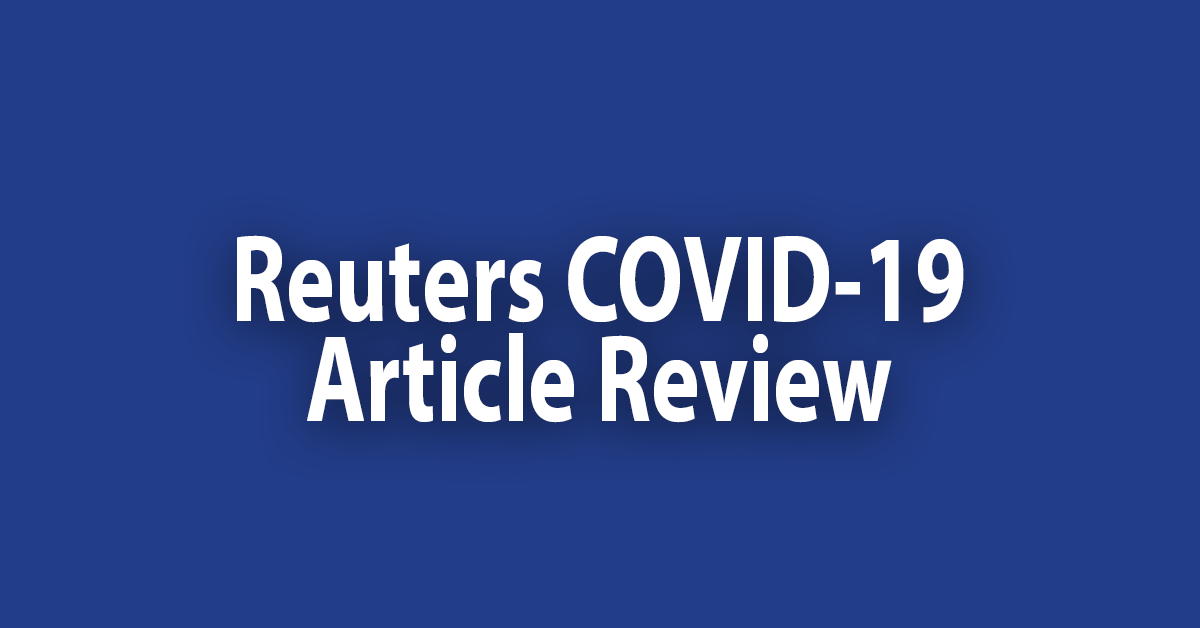Review of Reuters Article listing the drugs, test and tactics.
First of all I am extremely happy to see the immunosuppressant drugs moving up in prominence for helping to stop this pandemic. This article discusses two IL-6 inhibitors and a chemo drug, Jakavi, used for myelofibrosis, host vs. graft rejection, and atopic dermatitis. Not able to determine exactly how Jakavi works or what cytokines /immune pathways it inhibits.
There is still no mention of the more common host vs. graft rejection drugs commonly given to organ transplant patients, such as Rapamycin and Tacrolimus, as possibilities for shutting down the excessive immune response. I am not sure they will work, just concerned why no data can be found on these, especially since Rapamycin has been determined to decrease ARDS in animal studies, and it is given to organ transplant patients daily for life. The following graphs are from a nature article written in 2016.
Rapamycin attenuates acute lung injury induced by LPS through inhibition of Th17 cell proliferation in mice
Zhao Yan, Zhang Xiaoyu, Song Zhixin, Qi Di, Deng Xinyu, Xia Jing, He Jing, Deng Wang, Zhong Xi, Zhang Chunrong & Wang Daoxin
Scientific Reports volume 6, Article number: 20156 (2016)
I am posting this data here because a picture is worth a thousand words. This type of data is exactly what I want to see when I open up the daily news. I want to know why some COVID-19 patients are experiencing an Acute Respiratory response, while others are not. It was previously determined this response is due to a “Cytokine Storm,” but what is not established is what cytokines are involved in this response. If we can determine which cytokines are increasing during the severe respiratory response we can get in front of this issue and shut down the inflammation before the need for ventilators, thus decreasing both lung damage and the death rate.
The authors of this article chose to investigate IL-17 and IL-22. They measured the levels in patients with ARDS and compared them to healthy levels of these cytokines. They also collected data from these patients at three time points. This data demonstrates increasing levels of both IL-17 and IL-22 in the patients who do not survive their respiratory syndrome. This paper also studies the effects of Rapamycin on ARDS. They demonstrate Rapamycin decreases cytokines IL-17 and IL-22, TNF-alpha, neutrophils, and inflammation in the lungs of mice with Acute Lung Injury.
I am not sure if there is a viable reason why Rapamycin, with this and other scientific data, is not currently on the list of possible drugs to shut down the cytokine storm with COVID-19 patients. If we can determine the cytokines involved with the ARDS of the COVID-19 patients, we should be able to measure them and shut them down with appropriate medications prior to the severe response even occurring.
From Reuters article by Christine Soares:
ACTEMRA (Tocilizumab) –Roche
KEVZARA-Regeneron
Rheumatoid arthritis drugs are are man-made antibody proteins to bind to Interleukin 6 (IL-6), also used for treating “Cytokine Storm,” an over expressive immune response in cancer patients. China approved Actemra for treating the excessive response in COVID-19 patients with excessive levels of IL-6 the first week of March. Roche currently nets $1.7 Billion in annual global sales for Actemra. Pharma Trak reports China demonstrating a 95% success rate for severe COVID-19 patients. Again, I am frustrated by claims such as this, as the data is not readily available to view. This article states 20 severely ill COVID-19 patients given Actemra and 19 responding by leaving the hospital within 2 weeks. Unfortunately, I cannot locate a good source for information on the IL-6 levels of severe COVID-19 patients prior to and after treatment. This article also states the FDA has approved a study for treating COVID-19.
https://www.pharmatrak.net/actemra-fda-approved-for-covid-19-trials-had-95-success-rate-in-chinese-trial/426/
“The FDA has approved a randomized, double-blind, placebo-controlled phase III study into the efficacy and safety of intravenous Actemra (tocilizumab) for treating COVID-19, the disease caused by the novel coronavirus SARS-CoV-2.”
As a scientist this pandemic is giving us a huge amount of information on the pathways of the immune response to COVID-19 in various patients. Numerous research labs are collecting cytokine data from patients daily, yet this is time consuming and costly, and each lab will be asking different questions and collecting a unique set of cytokine data to address their personal theories. If we can get a compilation of this data we can universally increase our knowledge of what is going haywire with the severe acute respiratory syndrome patients, similarities and differences, and if an IL-6 inhibitor or IL-22 inhibitor is the most effective drug in all cases of ARDS or only a fraction of them. If we know the cytokines and their concentrations associated with the Acute Respiratory Syndrome we can monitor patients before they have severe inflammation in the lungs. We then could shut it down before it occurs and thus decrease burden to the healthcare system while simultaneously decreasing the death rate.
Again open access to controlled Immunology data of COVID-19 patients is critical to shutting down the most severe responses and decreasing the death rate. A secondary way to investigate this is to include in this open access a compilation of information on COVID-19 patient history and current pharmaceuticals. With access to this type of data we can collect statistical data:
- Number of Rheumatoid Arthritis patients positive for COVID-19
- Number of RA patients experiencing ARDS
- Number of RA patients fatalities
- RA medications the various patients were taking when infected /outcomes
From this we might determine if indeed a RA medication is preventing these patients from experiencing the severe “Cytokine Storm” response.
A similar set of data can be studied on organ transplant patients. These patients are on immunosuppressant medications such as Rapamycin. Are any of these medications preventing the patients from severe ARDS?




